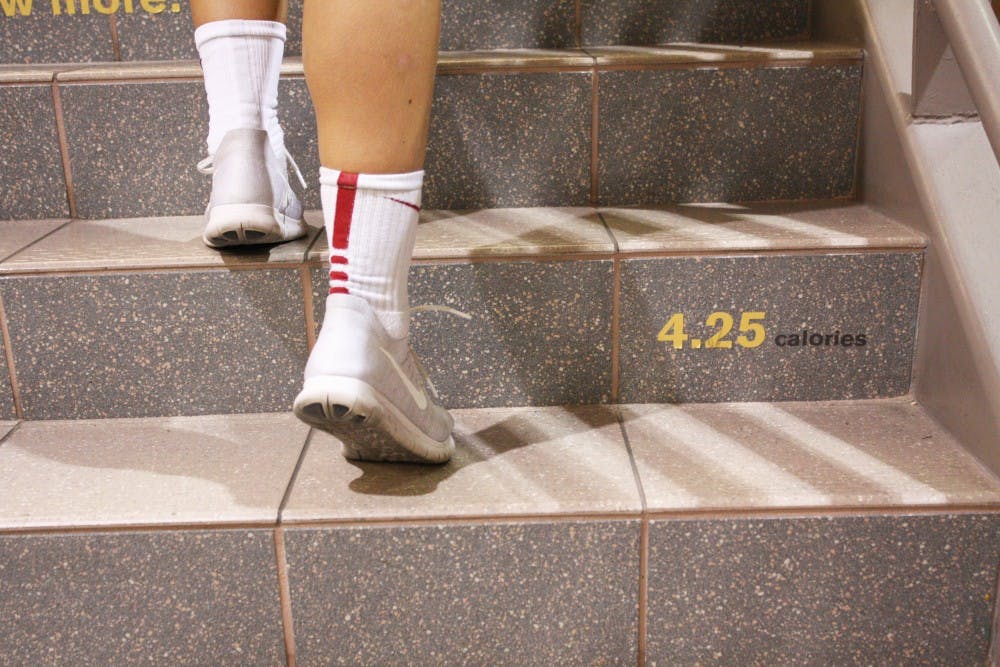Google Maps began testing an experimental feature in their iOS app in early October that displayed calorie counts for walking distances. It also showed how many hundred-calorie “mini cupcakes” were hypothetically burned during walking.
Fitness trackers have become increasingly popular among young adults – nearly one-third of college students use smart devices to track their activity.
This feature received an overwhelming amount of backlash to the point at which the feature was removed altogether.
Still, Google Maps does not necessarily deserve all the negativity. While the execution was questionable, the fitness tracking initiative was still a definite step in the right direction.
Although Google was working toward a new health initiative promoting physical activity that a lot of tech companies are incorporating into their user interface, they missed the mark when they decided to incorporate the trade-off between physical activity and diet.
This is especially evident as they used mini cupcakes, which are commonly perceived as junk food, rather than any other food of the same caloric value but with a healthier nutritional composition.
Sarah Martinelli, a registered dietician and clinical assistant professor for the College of Health Solutions at ASU, said that displaying calorie counts is not entirely effective in promoting health.
“If you eat a cupcake, you’re attaching guilt to it,” Martinelli said. “We want people to enjoy food and not feel guilty … I like the idea that they’re encouraging walking, but maybe you should earn heart-healthy points rather than working off cupcake. I would really just like some sort of acknowledgement that it’s a healthy choice rather than using counts.”
For students on campus who use walking as their primary method of transportation, this feature could have potentially led to a damaging mindset for many.
“I don’t believe that calorie menu labeling in restaurants is negative for our overall health,” Martinelli said. “I think this is more sensitive because this is presented as an exchange between food and calories.”
The backlash to the feature did breach the realm of reasonability. Some even argued that this was an attack on women, claiming that cupcakes were associated with women more than they were with men.
Nevertheless, this kind of negative response does have worrisome effects; being too obsessed with the political correctness of a piece of technology should not inhibit the accessibility of useful information for users.
The Google Maps feature was simply an attempted initiative. Several companies and apps have adopted similar initiatives or have inadvertently reached this goal of promoting physical activity, such as Fitbit, MyFitnessPal, and even Pokémon GO.
The iPhone Health app, which comes pre-installed with a pedometer function on the phone, serves as a way for users to access information on their own activity throughout the day.
“Technology has been doing so many great things in health and wellness,” Martinelli said. “They’ve been great motivators to get people moving, but I think any company should seek information from experts before taking anything to market. If Google had run their concept by any number of health or science researchers, they could have put out a better feature the first time around.”
Apps like these, done right, can have a more positive impact on users than do apps which focus purely on calories and limiting consumption.
Reach the columnist at kalbal@asu.edu or follow @KarishmaAlbal on Twitter.
Editor’s note: The opinions presented in this column are the author’s and do not imply any endorsement from The State Press or its editors.
Want to join the conversation? Send an email to opiniondesk.statepress@gmail.com. Keep letters under 500 words and be sure to include your university affiliation. Anonymity will not be granted.
Like The State Press on Facebook and follow @statepress on Twitter.




